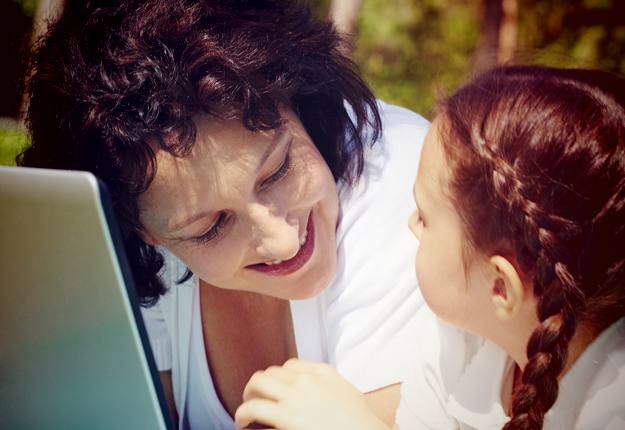Almost 75 Per Cent of Australian Parents Blame the Internet for Forcing the ‘Facts of Life’ Conversation to Happen at an Earlier Age
By the age of ten, the majority of Australian children will have already had their first ‘facts of life’ talk with their parents, according to new global research from AVG Technologies. Also revealed is that this is up to five years earlier than their parents’ generation, nearly half of whom (44 per cent) could not remember having had the conversation until the age of 15 – if at all.
The responses covered discussion of adult themes such as porn – which the Australian parents surveyed revealed as the least comfortable topic of conversation – followed by sex and puberty. The Internet was clearly pointed to as a driving force behind the advance in earlier family talks. Concerns over how much time their children spent on devices (a worry for 47 per cent) and how easy it is for them to access inappropriate content online (48 per cent) were clear.
Parents globally rate themselves as the people who are ultimately responsible for making the Internet safer for their kids. To help address their concerns and tackle Internet safety – in an easy and comfortable manner – AVG has created a series of interactive ‘click-or-tell’ digital books, called Magda and Mo. Developed with global Internet safety charity, Childnet International, the introductory book, ‘The Pirate’s Donut’, is a fun story for young readers and their parents to read together as they guide the title characters to decide between going online themselves or asking a grown-up for help.
With AVG’s research indicating confusion over how best to tackle the online safety of their children, the Magda and Mo series help parents with clear, simple suggestions for some of the most effective steps they can take.
While the most popular online safety methods parents said they were currently using varied from country to country, in Australia they included: explicitly forbidding their kids from talking to strangers via Skype and chat rooms (48 per cent); providing access to the Internet or connected devices only under supervision (46 per cent); to only visiting agreed websites and social networks (44 per cent); and only using the Internet for a set amount of time (41 per cent).
Australia has the highest percentage of parents who introduce no controls but that is still low at just 6 per cent. Globally, despite more than eight out of ten (81 per cent) parents implementing one or more restrictions, only a third (35 per cent) of the children who responded to the survey in conjunction with their parents, thought that the Internet could be dangerous.
The majority of Australian parents (61 per cent) also felt that by age 12 their child would know more than them about the Internet and one in five (20 per cent) said that this had or would have already happened by the age of nine.
“This illustrates the need to start the process of learning the do’s and don’ts of the Internet at a young age, and for parents and children undertaking it together as a joint activity,” said Michael McKinnon, Security Advisor at AVG Technologies AU. “The importance of having this conversation properly and early cannot be underestimated, as connected device usage is increasing. The Magda & Mo books are part of AVG’s wider aim to support families by providing useful tools that can help develop a child’s understanding of how to make right choices online, as well as giving parents some practical guidance on the subject.”




















-

-
-
BellaB said
- 08 Oct 2020
-

-
-
mom81879 said
- 22 Nov 2015
-

-
-
smiles said
- 30 Apr 2015
-

-
-
mom73211 said
- 08 Oct 2014
-

-
-
mom57522 said
- 05 Aug 2014
-

-
-
buggeritliz said
- 02 Aug 2014
-

-
-
hayley91 said
- 25 Jul 2014
-

-
-
skbou said
- 25 Jul 2014
-

-
-
mom71845 said
- 20 Jul 2014
-

-
-
mouse said
- 13 Jul 2014
-

-
-
june11 said
- 27 Jun 2014
-

-
-
damish70 said
- 16 Jun 2014
-

-
-
cherz said
- 16 Jun 2014
-

-
-
nicky732 said
- 16 Jun 2014
Post a comment7:47 pm
1:03 pm
3:00 pm
11:36 am
11:36 am
1:17 pm
11:24 pm
-

-
-
ginoula5 replied
- 15 Aug 2014 , 9:21 am
Reply11:10 pm
-

-
-
hopefullyheidi replied
- 28 Jul 2014 , 10:23 pm
Reply7:30 pm
10:44 am
5:44 pm
10:52 pm
2:19 pm
9:45 am
To post a review/comment please join us or login so we can allocate your points.